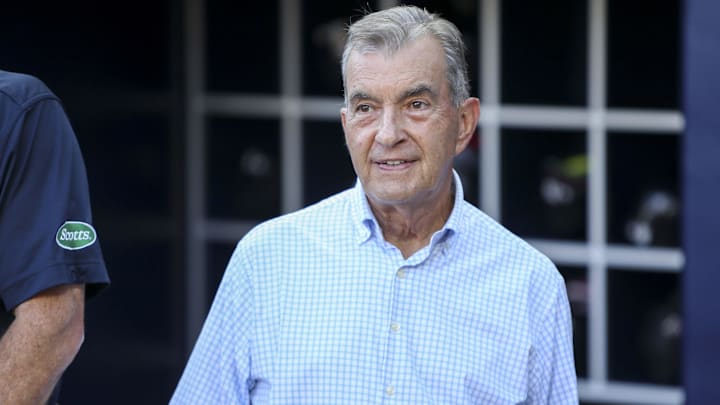John Schuerholz continued his success in Atlanta
Several things led to the Kansas City club's decline, not the least of which was Schuerholz leaving for the same position in Atlanta in 1990. After 22 seasons in Kansas City, Schuerholz oversaw the construction of a Braves dynasty that included a World Series championship in 1995.
His departure marked the end of a golden era for the Royals, although he did indirectly contribute to Kansas City's second World Series title in 2015. Dayton Moore, who became the Royals' general manager in 2006 and built the 2015 championship team, worked under and learned from Schuerholz in Atlanta (as did current KC general manager J.J. Picollo).
But as amazing as the 2014-2015 seasons were for the Royals, Moore failed to recreate the kind of stable success Tallis and Schuerholz built and maintained for more than a decade. Tallis' Royals went from an expansion team to a winning record in just three seasons, a progression practically unheard of at the time. The Royals became the model for all expansion teams of the era and were a perennial contender from the mid-70s up until their championship season in 1985.
Sadly, Tallis is not alive to receive his honor — he passed away in 1991. Schuerholz, fortunately, is still alive and well. But considering he was inducted into the National Baseball Hall of Fame in 2017, it is safe to say the induction of both men is long overdue.
